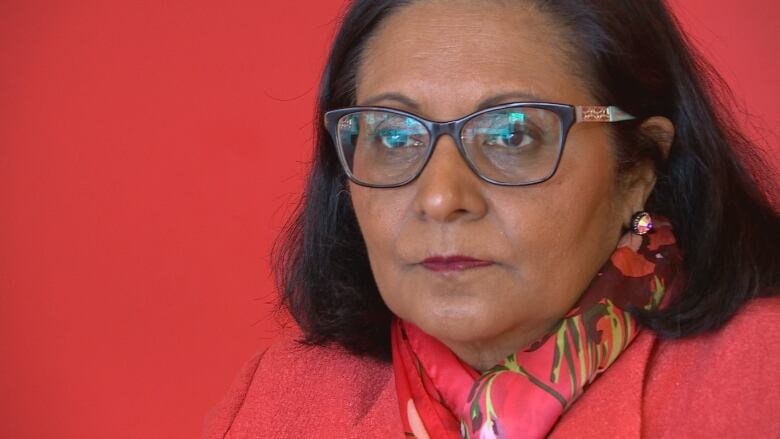Federal government's position on Manitoba border crossers questioned
Public Safety Minister Ralph Goodale says 'a great many' don't stay here, but province believes 70% do

The Manitoba and federal governments have been unable to resolve a dispute over refugee funding because they cannot agree on how many claimants walking across the border stay in the province.

"There's been no specific commitments. They're certainly willing to talk, which is a good sign," Wishart said. "And we will work with them on that and try and find some solution."
Welcome Place, a non-profit agency that has provided short-term shelter, paralegal services and other help to most of the recent arrivals, has also asked the federal government for money.
"They did ask us to submit a budget a couple of months ago, but we have not heard back from the federal government on where they are," said Rita Chahal, the agency's executive director.
A few hundred people have walked across open fields and through ditches into Manitoba since Jan. 1. Many of those making the journey are originally from African nations and fear deportation from the United States under toughened immigration laws.
They cross unofficially instead of at border posts because of the Canada-U.S. Safe Third Country agreement. Under that agreement, people who have made refugee claims first in the U.S. are turned back at official Canadian entry points, but it does not apply if they manage to get onto Canadian soil some other way.
- Why refugees are choosing to cross into Manitoba instead of Saskatchewan
- Refugee influx: 5 things to know about illegal border crossings into Canada
Last month, federal Public Safety Minister Ralph Goodale said "a great many" of the border crossers were not staying in Manitoba, so the demand for social services might not be as high as some believe.
Goodale's office was unable to provide statistics to back up his statement. His office referred questions to the Department of Immigration, Refugees and Citizenship Canada, which did not provide statistics, but said many claimants from Manitoba were scheduling their hearings in other provinces.
"Based on where hearings with the Immigration and Refugee Board are scheduled compared to where the asylum claim was made, we anticipate that the majority of asylum claimants are planning to relocate to larger urban centres such as Toronto, Montreal and Vancouver," department spokeswoman Nancy Chan wrote in an email.
Recent arrivals staying: Wishart
Wishart said many of the refugee claimants at the start of the influx last year did not stay in Manitoba, but he estimated about 70 per cent of recent arrivals have. The province's Department of Families said it has processed 119 applications for welfare benefits from refugee claimants since Jan. 1, some of which are for couples and families.
Alastair Clarke, an immigration lawyer in Winnipeg, said most of the refugee claimants he represents are remaining in Manitoba.
- 'Pallister is right': Emerson official urges feds to address asylum-seeker surge
- Federal ministers see the asylum seeker situation on the ground in Emerson, Man.
"I stay in touch with my clients ... because I help them with their permanent resident applications, and many if not all of my clients over the past six months have stayed in Manitoba," he said.
Welcome Place launched a fundraising campaign last month and has so far raised less than half of its $300,000 goal, Chahal said. The group is busy but has been able to meet the needs of refugee claimants to date.

The Manitoba government announced in February that it would pay for 14 new emergency housing units, $110,000 for paralegal and other services and $70,000 for a co-ordinator to support refugee claimants.